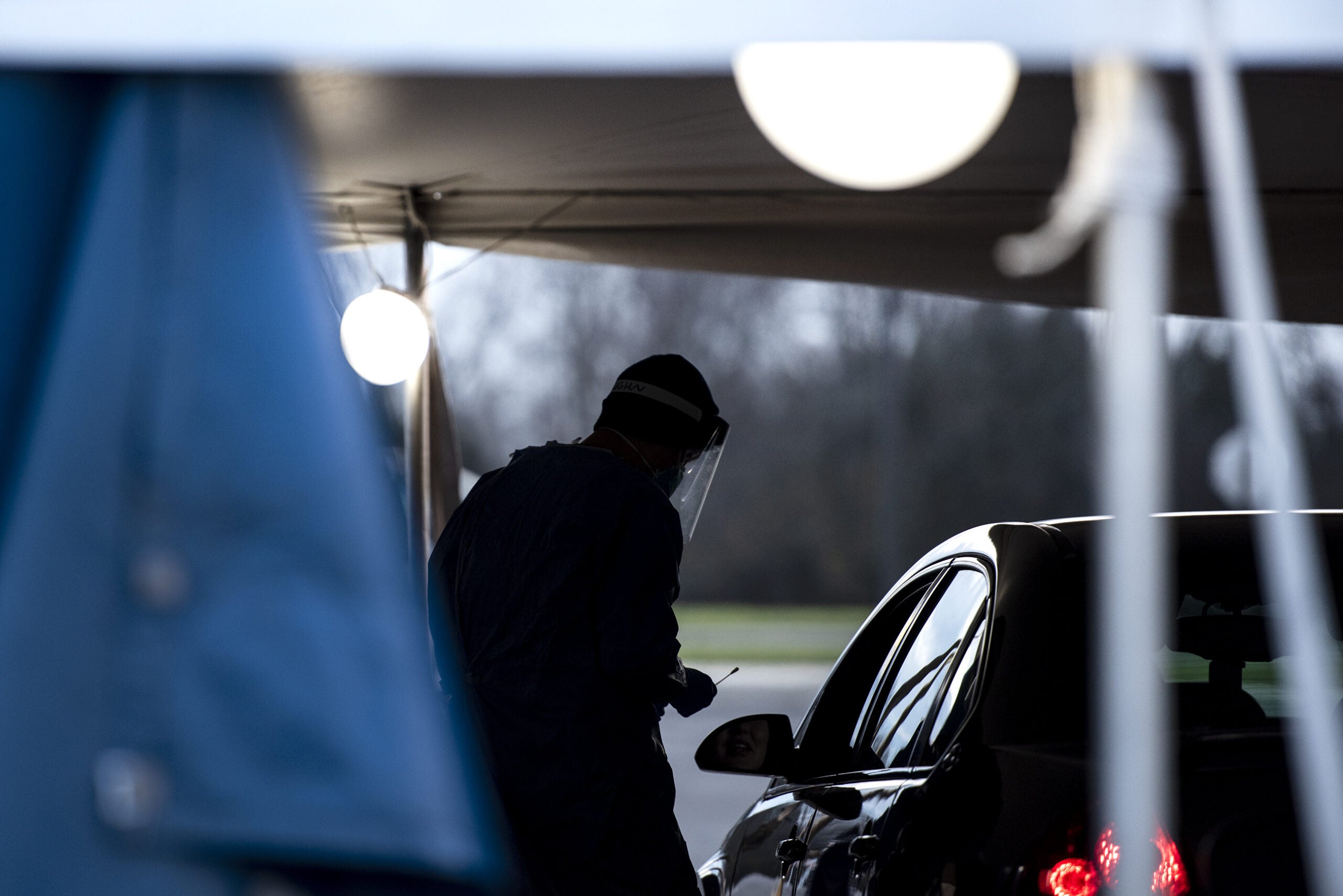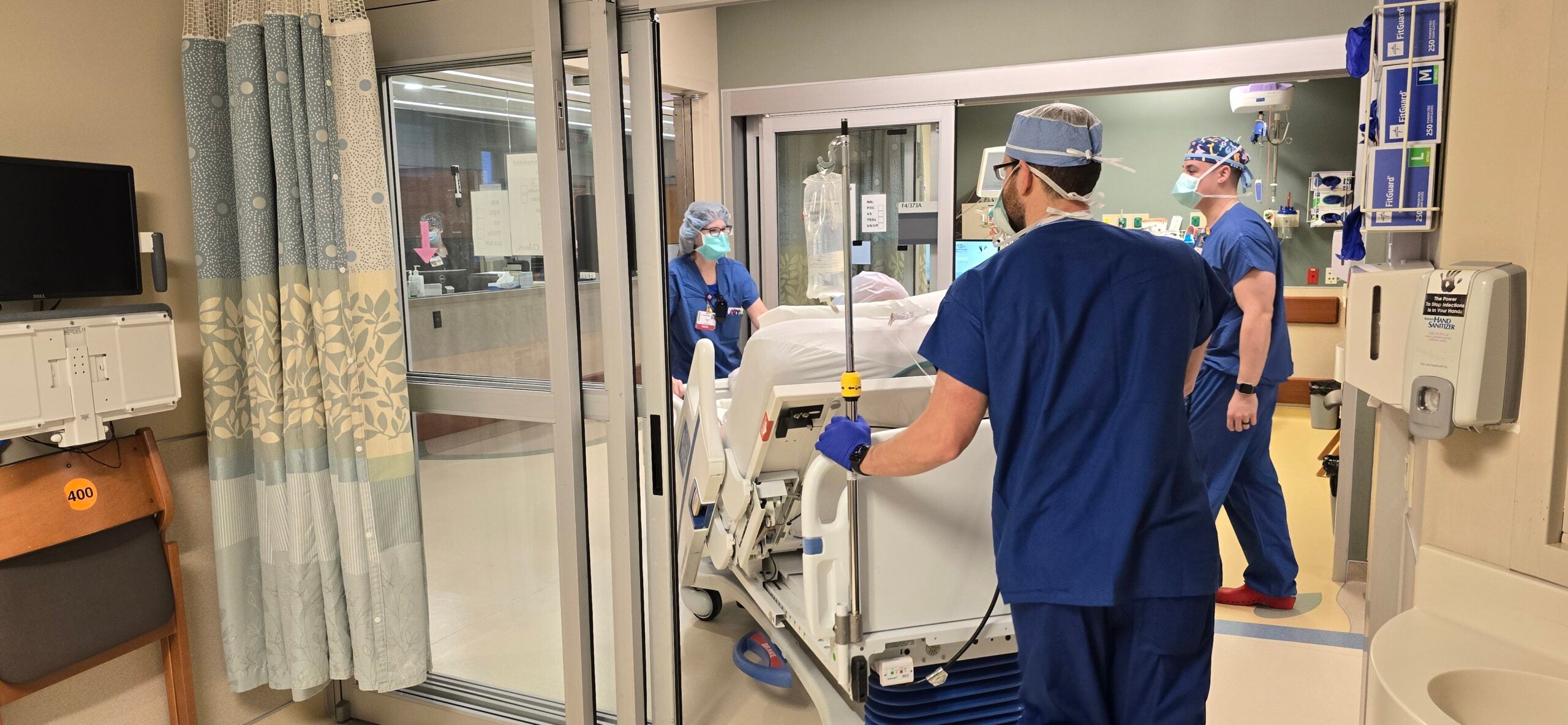The Wisconsin Hospital Association is calling on Gov. Tony Evers and the Republican led state Legislature to work together and take immediate action to slow the spread of COVID-19 and help hospitals struggling to care for a growing surge of new patients.
In a letter sent to Evers, as well as to Assembly Speaker Robin Vos, R-Rochester; Senate Majority Leader-elect Devin LeMahieu, R-Oostburg; Senate Minority leader Janet Bewley, D-Mason; and Assembly Minority Leader Gordon Hintz, D-Oshkosh, WHA President Eric Borgerding said the state’s top elected officials need to “come together immediately with unified actions” to slow demand on health care in the state and increase the capacity at the state’s hospitals.
Borgerding said no one is more “burned out” from COVID-19 than health care workers at the state’s hospitals.
News with a little more humanity
WPR’s “Wisconsin Today” newsletter keeps you connected to the state you love without feeling overwhelmed. No paywall. No agenda. No corporate filter.
“But their exhaustion, and increasingly their frustration, is compounded by the still unmitigated spread of COVID,” Borgerding wrote. “The spike in cases, surge in hospitalizations and increasingly strained health care workforce is a devastating combination that calls for unity and action.”
In an interview with WPR said it’s hard to overstate the long hours and emotional stress doctors and nurses are facing.
“This is an awful situation,” said Borgerding. “And the toll it’s taking on our health care workforces is really tragic.”
On Thursday, the Wisconsin Department of Health Services reported 83 deaths from complications associated with COVID-19. That’s the second highest single-day death total since the pandemic began. DHS reported 2,217 patients are currently hospitalized with the disease across the state.
Borgerding’s letter pointed out that it took “roughly seven months” for the state to reach 101,227 confirmed cases of the disease. Then, he said it took 36 days to reach 201,046 cases and just another 18 days to reach 301,165. All told, there have been a total 338,472 positive COVID-19 cases.
“With few tools available right now to curb spread other than increasingly urgent public appeals, our COVID numbers are growing rapidly and predict, quite accurately so far, a health care crisis in Wisconsin that without significant, swift and unified action will become a catastrophe,” Borgerding wrote in the letter.
The WHA letter outlined a series of steps lawmakers could take to both slow the rate of community spread and help the state’s health care system treat those requiring hospitalizations.
Borgerding said the spread could be slowed with things like a statewide mask policy and affirming local governments’ right to enact local policies aimed at reducing COVID-19 transmission.
To increase hospital capacity, Borgerding said state-elected officials can enact policies that would make it easier to bring in health care workers from outside Wisconsin by providing financial assistance to help pay for more expensive traveling doctors and nurses known as “agency staff.” The letter applauded the state for providing $80 million to long-term care facilities in the form of $2,900 payments to nursing homes that take residents who are ready to be discharged from the hospital. Borgerding said lawmakers “must now respond with a similar commitment for our state’s severely challenged hospitals.”
The WHA letter also praised the state’s decision to open and maintain an alternate care facility at the Wisconsin State Fairgrounds in West Allis that provides a space for recovering patients that are not well enough to go home. Borgerding said building others around the state would make it easier for hospitals outside southeastern Wisconsin to transfer patients there.
Finally, Borgerding called for expanded COVID-19 testing and contact tracing, Medicaid reform to better reimburse hospitals, and to make temporary health care licensing changes that allow staff from other states to practice in Wisconsin permanent.
WHA’s call for action comes just days after Wisconsin Supreme Court justices heard oral arguments for a lawsuit that seeks to overturn Evers’ emergency powers, which he used to enact a statewide mask mandate.
Borgerding told WPR he believes all state lawmakers want to do what they can to protect the state’s residents amid the pandemic though they may disagree how to get there. But he said now is the time to find common ground.
“Because all or nothing, from either side, means more often than not, nothing,” Borgerding said. “And that’s that’s not what Wisconsin needs right now.”
Wisconsin Public Radio, © Copyright 2025, Board of Regents of the University of Wisconsin System and Wisconsin Educational Communications Board.






